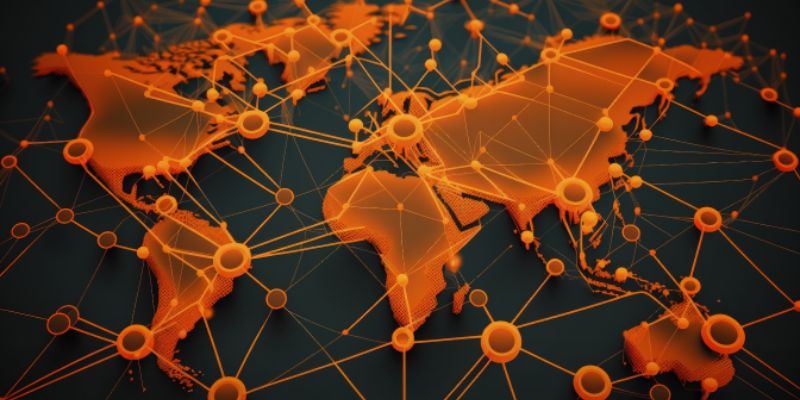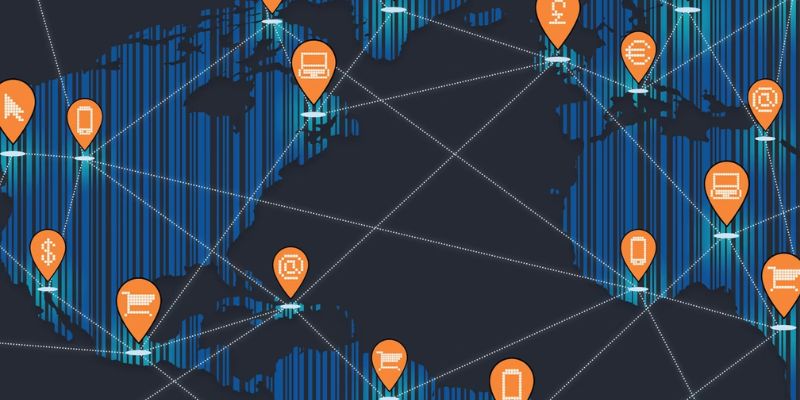Global Digital Dynamics: Unveiling Diverse Regulatory Approaches to Online Platforms
Imagine a world where every online move you make follows its own set of rules. How are different countries approaching the regulation of digital platforms? Each has a playbook filled with laws and guidelines. Let’s dive into this global game, from the EU’s bold moves to China’s unique control. Stick with me to explore the varied landscape where tech meets law, and see how powerhouses shape your digital life. Welcome to the complex world of digital platform regulation—let’s uncover what’s at stake and what lies ahead.
Navigating the Global Patchwork of Digital Platform Governance
The EU’s Pioneering Efforts: GDPR and the Digital Services Act
Europe leads in digital platform rules. The EU set strict online privacy actions with GDPR. They make sure people have control over their own data. This gave citizens new powers. They could ask companies, “Where’s my data? What are you doing with it?” Fines are huge for breaches. Trust in digital services grows with these laws.
The EU didn’t stop there. The Digital Services Act (DSA) came next, setting rules for online platforms. It’s about keeping users safe online. Big tech must check what’s on their sites more. They must act fast to remove harmful content. This act shows the EU’s strong stand on digital safety and freedom.
China’s Unique Cyber Sovereignty Framework
Now, let’s look at China’s cyber approach. It’s quite different. China believes in cyber sovereignty. This means they control the internet within their borders tightly. They keep a close eye on online info. Their rules direct how data moves and how the internet works. This control supports their own policies and views. China’s way impacts global tech firms big time. They must follow these local rules to work there. This includes giant online shops and social media from abroad.
Different places, different rules. This keeps things lively but tough. For folks using the internet, this patchwork can sometimes be hard to follow. It changes how we see privacy and use the web across the world. It’s a big deal for everyone, from you and me to large companies. We all need to keep up as rules shift and change.

Trends in Social Media Laws and Online Privacy Legislation
International Variances in Protecting User Data
Nations have unique laws to keep online user info safe. In the EU, they take privacy seriously. The EU Digital Services Act (DSA) sets tough rules for digital platforms. It forces big tech companies to share how they handle user data and take down bad content quickly.
Different places, different rules—that’s global internet policy for you. Countries adapt data protection laws to fit their needs. Some countries, like China, control data tightly, keeping it within borders. They follow the cyber sovereignty approach, which means “our internet, our rules.” For China, this means local laws first, global norms second.
In other lands, the focus is on user rights and open data flow. Take Brazil; they crafted a law called LGPD. It’s like Europe’s GDPR but tailored to Brazil’s vibe.
Now, here’s some scoop on GDPR: it’s a super important rule that impacts many countries. Want to do business in Europe? You gotta follow GDPR. It makes companies tell you how they use your data. It even lets you say, “Nope, don’t use my personal info.”
Section 230 Reform in the US: Balancing Regulation with Innovation
The United States has been talking about Section 230. It’s a law that shields online platforms from being blamed for what users post. Lawmakers are scratching their heads, asking how to change it. They want to stop bad stuff online but also don’t want to hurt new ideas and businesses.
Some folks say, “Hey, let’s make big platforms more responsible.” Others fear too much change could stop free speech and cool tech from growing. It’s a dance between keeping the internet open and keeping it safe.
So, what’s the ask? Update Section 230. Keep what’s good: businesses growing, people talking freely. Add protection against harmful posts. Tweaking the rule could do that.
Let’s speed talk some other places. Japan, they’re pushing for more clarity on how platforms work. India went for tighter control with the IT rules of 2021. Oh, and Australia? They got this Media Bargaining Code to make tech pay up for news.
As you see, everyone’s trying to figure out the online game. Rules change, keep up. Some countries are strict; others let data cross borders like birds flying south. It’s a big world out there, and the internet’s right in the middle, connecting us all. Each place stamps its own mark on the web, making it a patchwork quilt of privacy and speech.
Just remember this, friends: Across the world, the quest is the same—keep the bad out, let the good in, respect privacy, and don’t stifle the spark of new tech. We’re all surfing the same wave of change in this digital ocean. Let’s make it a safe ride, together.

Antitrust and Competition: The Tightrope for Tech Giants
Approaches to Antitrust Actions Against Digital Companies
Around the world, big tech faces big rules. From the US to the EU, governments watch tech giants closely. They aim to stop unfair power grabs. In the US, the government looks at how big companies affect you and me. They want to see fair play, just like in a soccer game. Now, Europe does more. With their EU Digital Services Act, they say “Play nice or pay the price.”
Regulating Digital Marketplaces and Ensuring Fair Play
Beyond the US, there’s a whole world of rules. In China, they draw a line. They say “Our internet, our rules.” It’s called cyber sovereignty. This means they decide what’s best for them, not anyone else. Canada, Brazil, and others have their own playbooks. They talk about keeping folks safe online. Everyone wants to make sure digital shops are like real markets — where no one cheats and everyone has a chance.
Now let’s talk tech and taxes. Countries say “If you earn here, you pay here.” This is global digital tax talk. It means big tech needs to chip in, like everyone else. Think of your local store paying tax. That’s fair, right? Well, it’s the same for digital stores worldwide.
I’ve seen laws change how we share stuff online. Places like India, Japan, and Australia teach tech giants to respect local rules. They’re like school rules. Follow them, and everything’s cool. Break them, and there’s trouble. It’s all about playing by the book.
So, here we are, sailing on the net’s big ocean. We have maps like the OECD’s digital economy guidelines and cyber rules to guide us. The waves can be rough — data flows this way and that, and sometimes there’s a storm, like when one country blocks data from another.
AI is like a smart robot friend. But even robot pals need rules. AI laws differ from place to place. Some keep it tight, others more loose. The EU is all about GDPR, making sure our data stays locked up safe and sound.
Ever think about who runs the net show? Digital service providers hold the reins. But with great power comes, well, you know — rules! They’re the referees making sure nobody cheats online.
We’re all in this web-world together. So, we create global content rules. It’s like how a movie gets a PG or R rating before you watch it. Everyone’s got a say — and sometimes, there’s a bit of shouting about how it’s done.
As for me, I keep an eye on these changes. Think of me as your digital tour guide. I spot new landmarks — like Korea saying “Hey, let’s cut app fees” or Russia going “This is how we do it here.” My job? To tell you about them.
It’s clear: the net’s no Wild West. There’s order in this chaos. Each country rides the tech bull its own way. Some hang on tight, some get thrown off. But we all want that fair digital rodeo. And that’s the thrill of the ride, isn’t it?

Cross-Border Challenges: Data Flows and Global E-Commerce
Cross-Border Data Flow Restrictions and International eCommerce Rules
Talking about data gets tricky when it goes global. We all shop online, buy things from other countries, right? Well, for this to work smoothly, data has to cross borders too. But not all countries see eye to eye on how to handle this.
Each country makes its own rules on online privacy and how data moves. So, global internet regulation policies matter a lot. For example, the EU Digital Services Act sets strict rules for digital platform governance. It’s a big deal for how social media laws worldwide work and for protecting online privacy by country.
But it gets super complex. Data protection laws globally can change a lot. A shopper in France has different privacy rights from one in Brazil. Companies have to keep up with all these different laws. And if they get it wrong, they could face huge fines or even get blocked from doing business somewhere.
As for tech giants, they have to follow even more rules under what’s called the regulatory framework. They’re so big that when they mess up, it can hurt lots of people. Antitrust action against digital companies is also a buzzing topic. If a big tech company tries to squash the smaller ones, governments may step in to level the playing field.
Now let’s chat about digital marketplaces, where folks buy and sell goods. They’re super handy. But here’s the catch: they need rules too. International e-commerce regulations help make sure that no one’s getting tricked and that the tax man gets his bit.
Oh, and AI — artificial intelligence — it’s getting smarter every day, right? But it’s not the same everywhere. Countries have their own ideas about artificial intelligence regulation differences. So, an AI in the US might be cool doing stuff that an AI in Europe would get in big trouble for.
Digital Service Providers’ Liability and Content Moderation Standards
Now, picture this: you run a website, and someone posts something awful. Should that be your fault? That’s where digital service providers liability steps in. Some places, like the US, have special rules to protect these platforms. They’re not held accountable for every single post.
But this is where it gets spicy. Let’s talk content moderation standards. Platforms decide what stays up and what gets taken down. There’s a whole dance they have to do to keep things fair. But if they trip up, they could get a hefty fine or, worse, make people feel like they’re not being heard.
Countries like Russia and China take a tighter hold, but they’re not alone. Internet censorship by country varies a lot. Some block a few things, others block a lot. You gotta know the game wherever you go or risk getting caught out.
So that’s the scoop on data flows and keeping things in check across borders. It’s like a complex game of chess where every move can shake up the market. But knowing the rules? That’s what keeps everyone playing fair.
Wrapping up, we explored the ever-changing world of digital platform rules. From the EU’s GDPR to China’s cyber laws, we learned how places shape the digital space differently. Social media laws and privacy steps also differ around the world. Even in the US, debates on Section 230 show the tricky mix of control and growth. Big tech firms face tough antitrust questions too, as governments test limits on power. Lastly, cross-border issues like data flow and e-commerce emerged as global puzzles to solve.
My final say: Staying smart about digital laws matters. They shape our online lives and the fate of tech giants. By understanding these laws, we get better at steering through the digital landscape. Let’s keep our eyes on these changes—they’re sure to keep coming.
Q&A :
How are different countries regulating tech giants?
Tech-savvy countries are developing and implementing various legislative frameworks to govern the actions of digital platforms. For instance, the European Union has introduced the Digital Services Act and Digital Markets Act, regulating digital gatekeepers and aiming to create a safer digital space. The United States focuses on antitrust laws to address the market dominance of companies like Facebook and Google, while countries like Australia have enforced laws requiring platforms to pay for news content.
What measures are being taken to protect user data on digital platforms globally?
Countries worldwide are enacting data protection regulations to safeguard user privacy on digital platforms. The General Data Protection Regulation (GDPR) in the EU is a prime example, setting stringent rules on data handling. Similarly, the California Consumer Privacy Act (CCPA) in the U.S. gives consumers more control over their personal information. Many other countries are following suit with comparable data privacy laws.
Are there international regulations in place for digital platforms?
While there is no single international standard for the regulation of digital platforms, global cooperation initiatives such as the G7 and G20 have discussed guidelines and frameworks for digital governance. Various multilateral treaties and trade agreements also include e-commerce and digital services provisions. These collaborative efforts aim to harmonize regulations across borders but are complex and ongoing processes.
How is content moderation being addressed in different countries?
Content moderation has become a crucial regulatory focus, with approaches varying widely. Germany’s Network Enforcement Act (NetzDG) requires platforms to remove illegal content swiftly. The UK is working on the Online Safety Bill, which emphasizes user-generated content regulation. Many countries are grappling with the balance between free speech and the need to deter harmful content, leading to a diverse regulatory landscape.
What impact do digital platform regulations have on international trade?
Regulations on digital platforms can significantly influence international trade, especially when they concern data localization, taxation, and market access. For instance, the European Union’s data protection laws can affect how non-EU companies operate within the region. Moreover, digital services taxes imposed by various countries have led to trade tensions, as seen in disputes between the U.S. and France. As the digital economy grows, the intersection of platform regulation and trade policy will likely become more prominent in international economic discussions.

